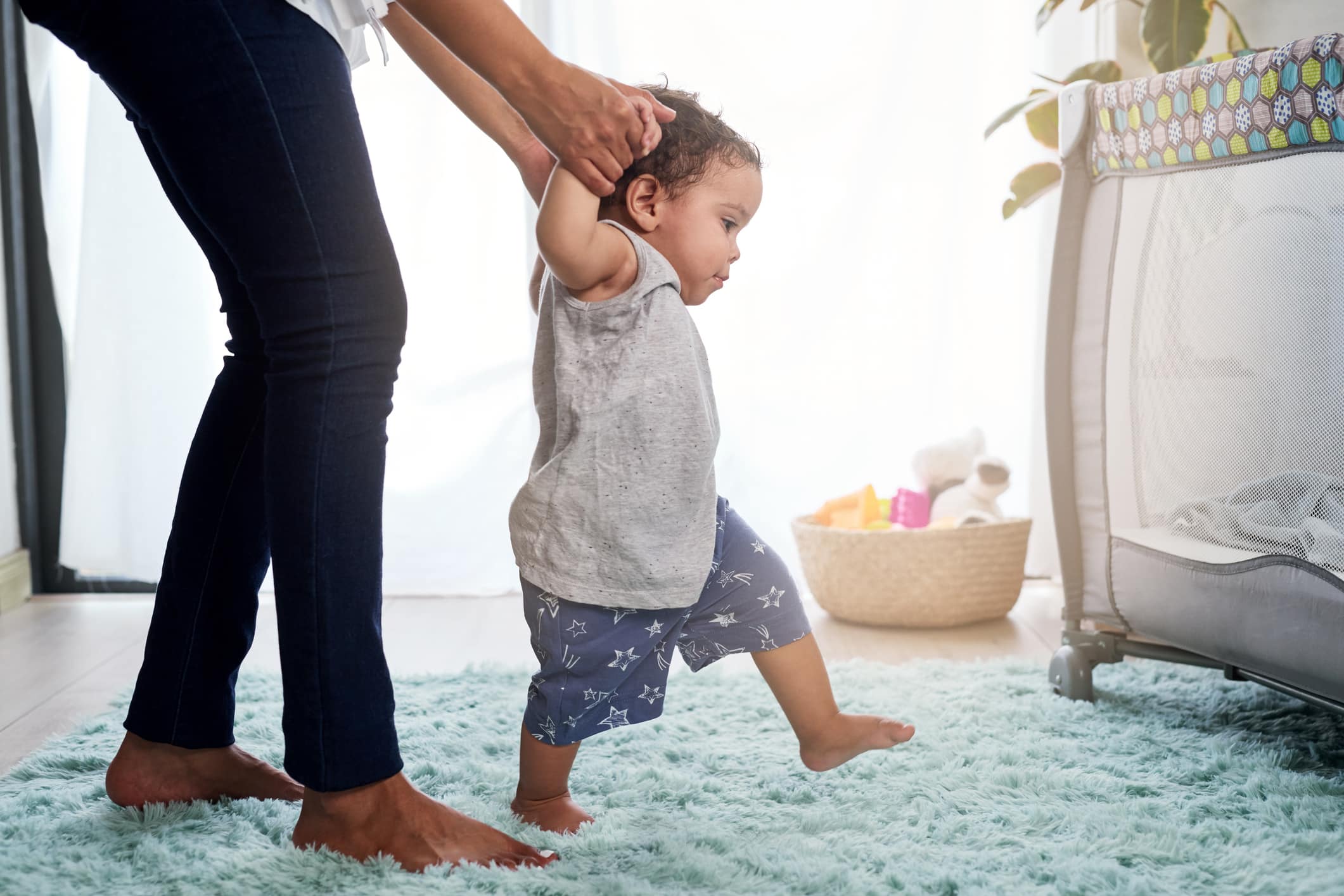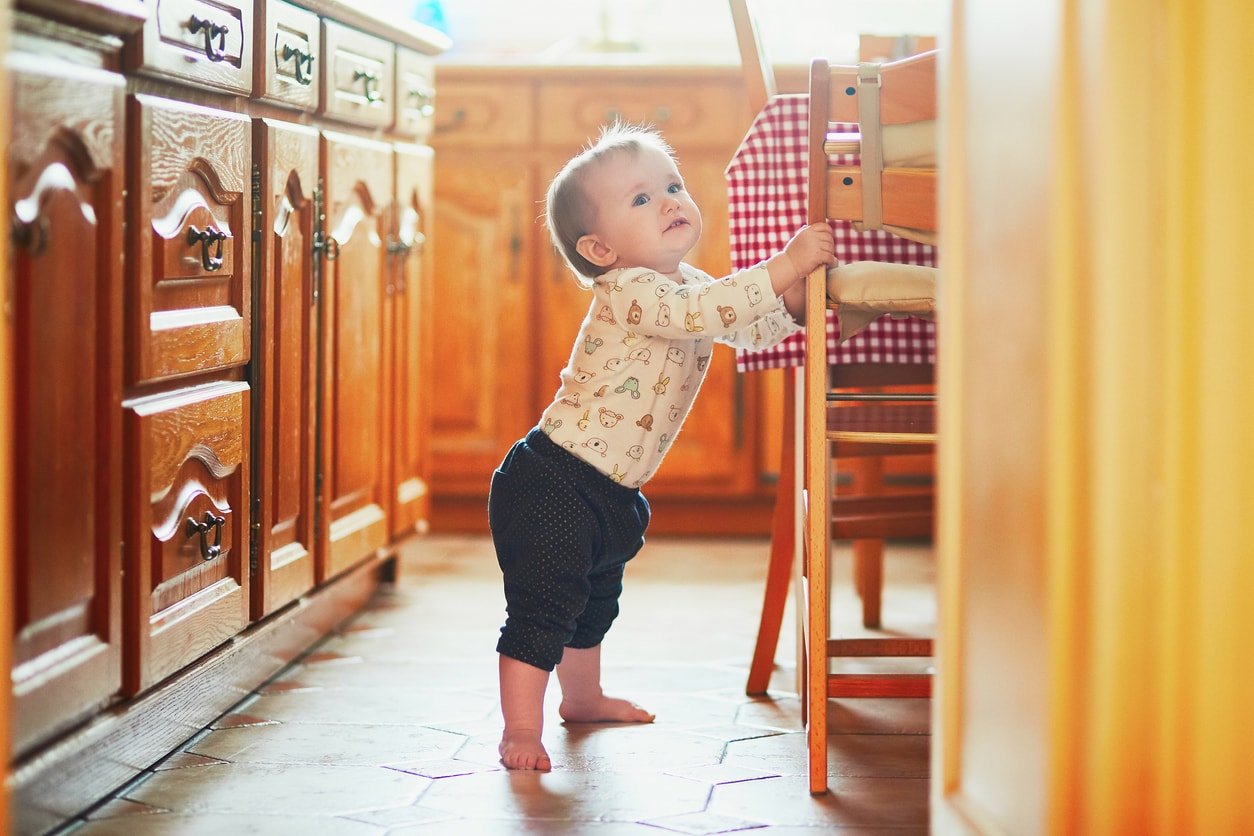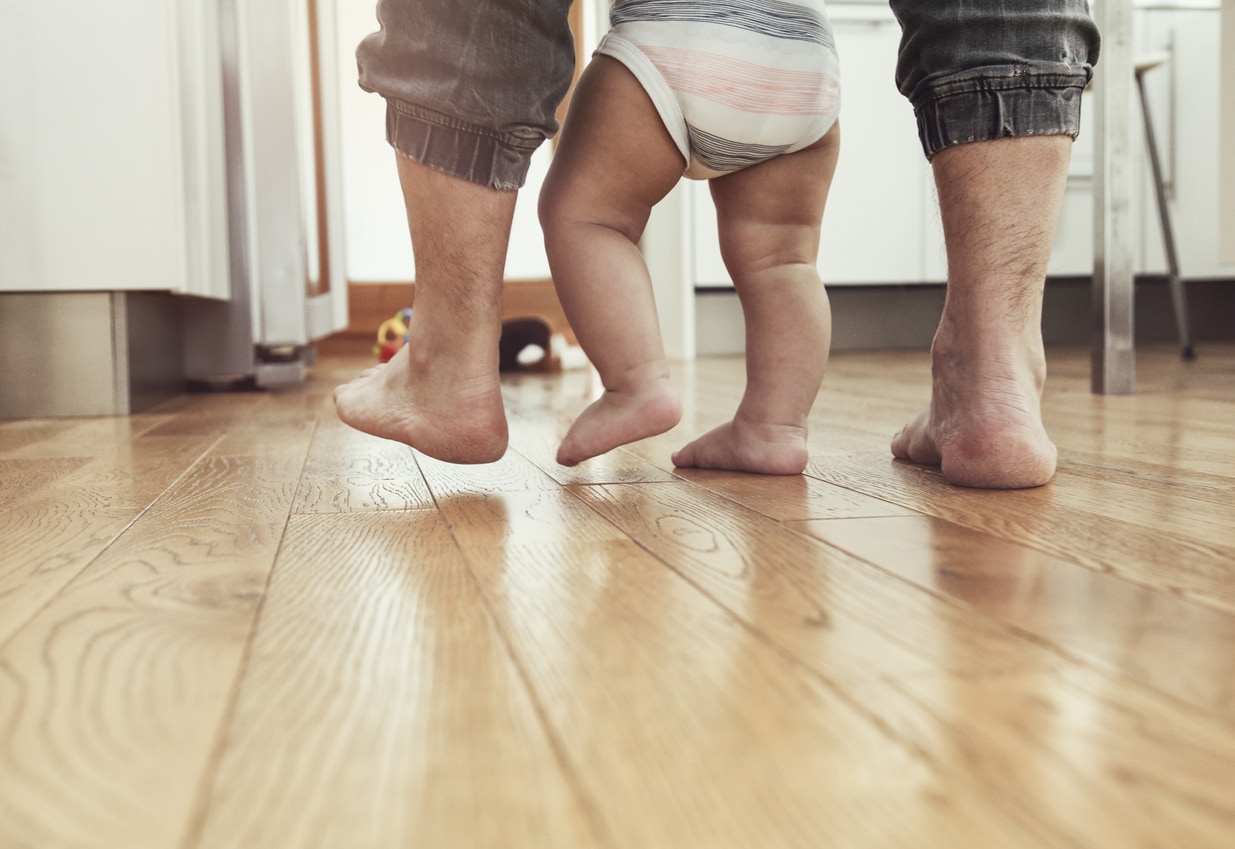
If you’re wondering when babies start walking, taking their first steps involves the coordination of several factors. An infant’s developing muscles, sense of balance, and ability to build upon skills used for sitting and standing all contribute to their achievement of the walking milestone.1 Here, you will learn about when this can happen, signs your child will walk soon, how you can support your baby’s first steps, and reasons for late walking in babies.
When Do Babies Start Walking?
You may be wondering about the age at which babies begin taking their first steps. Kids start walking at different ages, so while 12 months is the average age, your baby may take their first steps months earlier or later. Most babies learn to walk anywhere from 9 to 17 months. Once they learn to walk, it may take some time for them to maintain their balance consistently.4
Stages of Baby Learning to Walk

To learn how to walk, your baby will build upon skills they have already mastered. These include rolling over, sitting up, crawling, etc.2 Some babies prefer to scoot or slither around instead of crawling.3 Once they learn how to pull themselves up to standing, they may hold on to furniture or your legs.8
After your baby has mastered this skill, they can begin to cruise along furniture. As their balance improves, they may practice standing without holding on to anything.5 Next, as your baby’s confidence increases, they may take their first shaky steps. You may notice at first that their feet are wide apart.2 This stance is temporary while they work to improve their balance.4 Their initial attempt at walking will likely not get them very far, but many toddlers progress from taking their first steps to actual walking within days.5
What Are the Signs Your Baby Will Walk Soon?
These milestones are signs your baby will start to walk independently soon:4,8
- Your baby can pull themselves up to a complete stand.
- They are holding onto furniture while taking steps.
- They can stand without holding on to anything.
How To Encourage Your Baby To Walk
Once your baby can stand independently, you can help them learn to take their first steps by holding their hands and walking with them.4 Being physically close to your child as they explore this new skill may help them feel safe as their confidence gradually increases. They can also practice independently by pushing a flipped-over laundry basket or steady and supportive push toys around the house.4 To encourage your baby’s first steps, you can try standing at a short distance and motivating them to move toward you by showing them a fun toy.5
Creating a safe environment for your infant as they learn to walk is key to avoiding accidents. But unfortunately, falls are inevitable.8 When your child falls, offer a quick, comforting hug and encourage them to try again. They will be looking at your reaction to their accident. If you remain calm, you can provide your child with sturdy reassurance.2
When Should Your Baby Start To Wear Shoes?

While your baby is learning how to walk indoors, shoes are not necessary. Bare feet or socks with grips can help support normal foot and toe development. Once your infant begins walking outside, they should wear shoes to protect their feet.9
Baby Isn’t Walking Yet: When To Talk With Your Doctor
While your baby is learning to walk, it may be tempting to compare them with others their age who are already walking. Remember, every child achieves developmental milestones in their own time. However, if you’re concerned that your child may have a developmental delay, talk to their doctor. They could benefit from a developmental assessment, especially if they are 18 months old and not walking independently, seem to have trouble walking on one side consistently, or are struggling more than usual with this milestone.5
Some reasons for late walking in babies include:2,7
- Genetics: Some rare genetic syndromes can impact your baby’s ability to walk. Or, if you or their other parent were late walkers, it could be a trait they’ve inherited.
- Cautious and content personality: Another reason babies may reach the walking milestone late is that some kids are not interested in the risk-taking required for walking. They may simply prefer to take their time learning this new skill.
- Adjusted age: If your baby was born prematurely, your pediatrician will use their adjusted age to track their milestone achievement. This means using their due date, not their actual birthday, to follow their progression. When comparing your baby to kids of the same chronological age, they may seem behind. But remember, they’re on a different timeline.
- Hypotonia: Sometimes babies have low muscle tone, known as hypotonia. Since the large muscles of the legs are required for walking, these kids need more time and support in learning to walk.
You Have a Walking Infant: What Milestone Comes Next?
Once your baby can walk independently, they will practice stopping, changing directions, squatting, and standing.3 Running comes next, although this may not happen until 15 to 18 months for some kids.4 Your baby will continue to build upon their new skills and soon be able to do things like climb on and off a chair or sofa, kick a ball, and go up a few stairs without help.6
Your baby’s first steps require effort, and mastering this new skill takes time. It can be difficult to watch your baby struggle as they take on this endeavor. However, your comfort and encouragement will provide the support they need. When your baby is ready, they will build upon the milestones they have already achieved and bravely begin taking their first steps!
from Baby Chick https://ift.tt/KYfVBLv
via IFTTT


0 Comments
Please ,
Don't enter span link ...